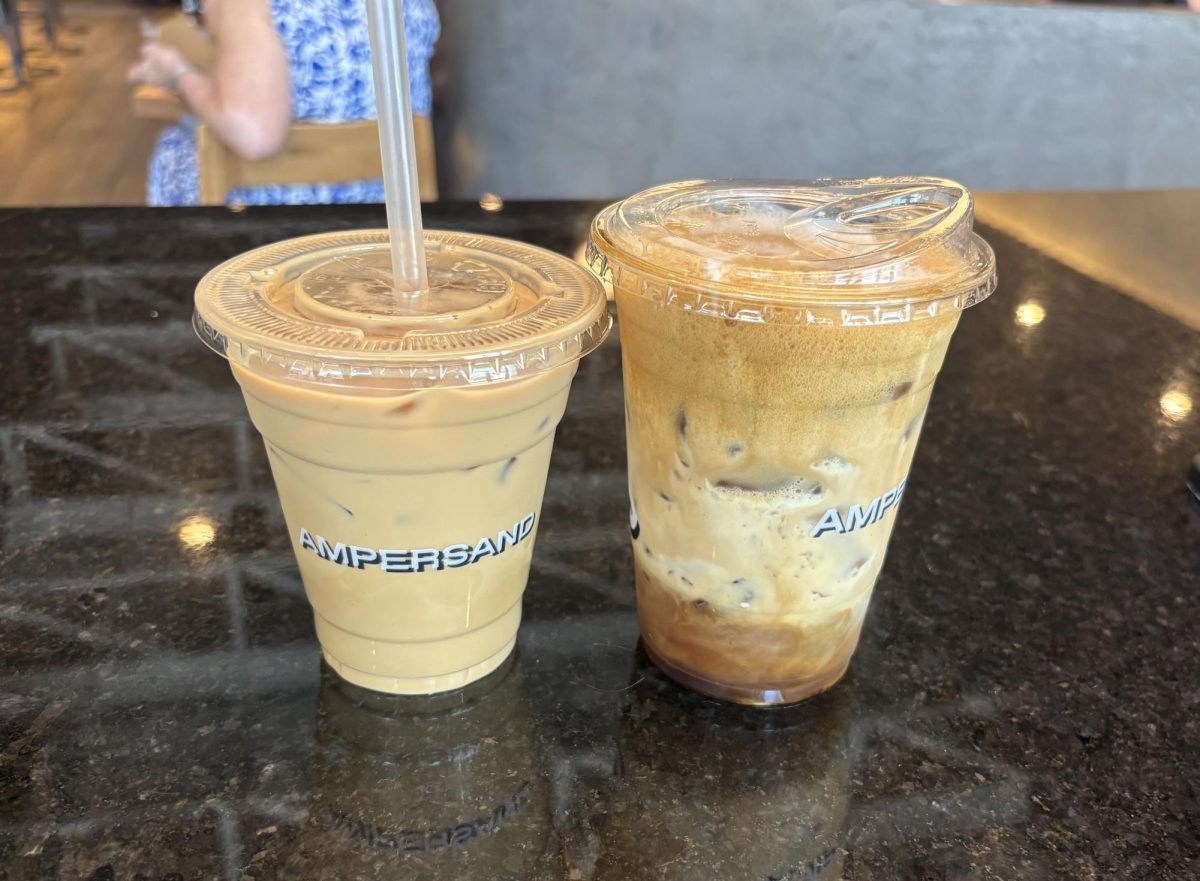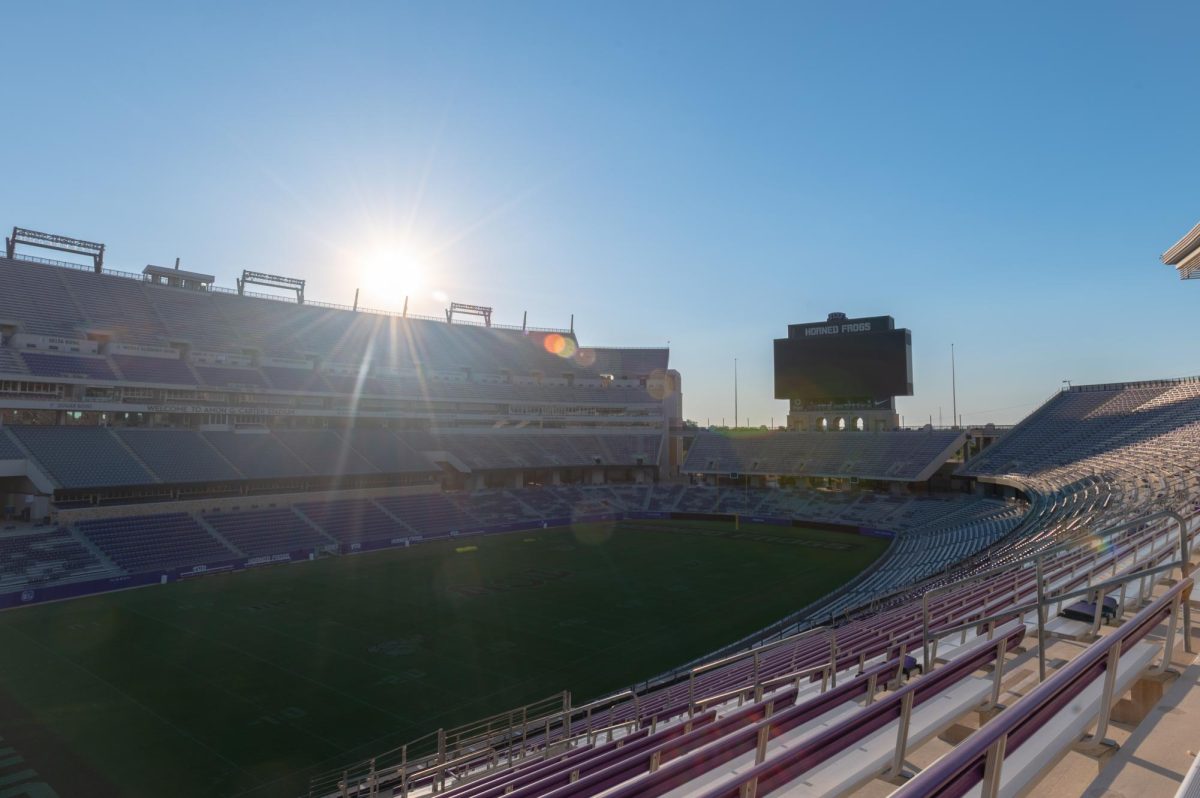Heather Denton has lived in the 109 for the past six years. She is a teacher at Paschal High School and travels from her apartment down South Hulen Drive and then up Bellaire Drive to West Berry Street to work every day.
Although there are buses that run along most of her route to work she said she has never ridden a city bus, and doesn’t know anyone else who has, either.
The T runs through the 109 on several different routes. The No. 7 route comes down South University Drive and loops around Bluebonnet Circle. The No. 25 follows South Hulen Drive all the way to Hulen Mall and then loops back across Interstate Highway 20 through neighborhoods along South Drive. The No. 24 travels up and down West Berry Street and the No. 32 also circulates in the 109 on Bryant Irvin Road. The No. 29 circles the TCU campus as the "Frog Shuttle" taking students back and forth among several stops.
Some of these routes, however, have some of the lowest ridership in the city. According to Joan Hunter, communications manager for The T, the No. 7 circulation was decreased from 30-minute stops to hourly stops due to low ridership and cuts in funding. This route ironically passes nine of Fort Worth’s popular destinations, as listed on The T website, including the Fort Worth Zoo, Texas Christian University and the Will Rogers Memorial Center.
This route down South University Drive had an average daily ridership of only 272 in August of this year and the only route surpassing 400 average riders per day was the No. 25 down South Hulen Drive, which served an average ridership of 2,056 in August.
While Hunter noted that ridership is a factor in how service is allocated by The T to various areas around Fort Worth, she said that money is also a big component, especially in a recession.
She said that because The T depends heavily on sales tax revenue for funding there have been cutbacks in services provided, even in the 109, because of the declines in sales tax as a result of the recession.
Hunter said that once the recession is over The T should be able to return to normal and "will be better able to provide more service."
What do people want?
After a series of public meetings was held earlier this fall, The T came up with a list of concerns to take into account when planning for future transportation needs in Fort Worth.
Hunter said the meetings were successful and that some of these items included more technology, bus stop shelters, lighting at stops in areas where there aren’t a lot of people or businesses and more on demand services.
Some of the new technology requested by members of the community included applications for cell phones, electronic payment and more real-time information to allow simpler trip planning.
"They want to be able to get apps that show where their bus is," Hunter said.
These apps, according to Hunter, would help streamline the public transportation system and would provide a great deal of benefits for the passengers. They could better plan their travel routes and figure out how long it would take them to get to their destination.
Hunter said another concern the Fort Worth Transportation Authority has is safety for those who choose to ride the bus. She said they are interested in getting more lighting at bus stops in areas that do not have it and also coverings for more bus stops to make waiting for the bus safer.
This was a concern that was echoed by the residents in the public meetings earlier this fall and one that Hunter says The T is working on.
Denton said that a big reason why she thinks residents of the area don’t ride The T is that they aren’t aware of it and that it doesn’t fit their lifestyles.
"It’s just not our way of life," Denton said.
But Denton did propose an idea that would allow her and other 109 residents to utilize The T as a method of transportation – on-demand services. She said that if she knew of an on-demand service that was traveling to a big event and picking passengers up at specific locations, she would use it.
The example she gave was TCU football games. Parking is a nightmare and it would really benefit residents of the area who don’t regularly ride the bus, Denton said.
Why the T is good for the 109
Mary Volcansek, a former board member for the Fort Worth Transportation Authority, agreed that most people don’t think to use buses in the area and qualify as what she calls "discretionary riders." Volcansek said these are people who ride the bus because they choose to, despite the fact that they own vehicles.
"[Residents should ride The T] to protect the environment and avoid congestion," Volcansek wrote in an e-mail. "Using buses makes The T an environmentally friendly option, and congestion on DFW highways and streets should encourage us all to use public transportation more."
But she admitted, much like Denton, that people in the 109 don’t think about the bus as a means of transportation but she said she is hopeful that when some of the changes discussed are made, that riding the bus will become a viable option for 109ers.



